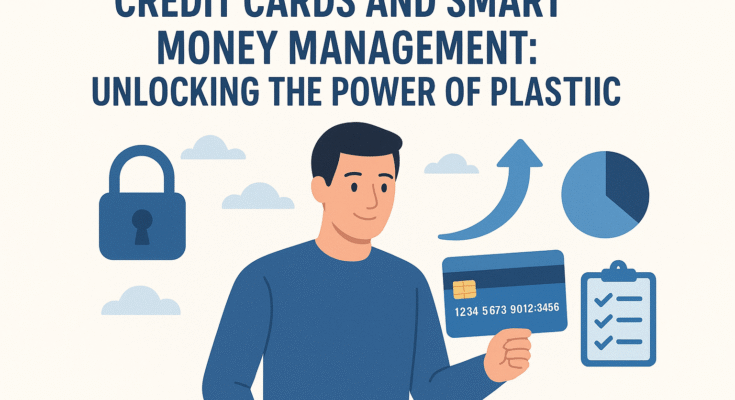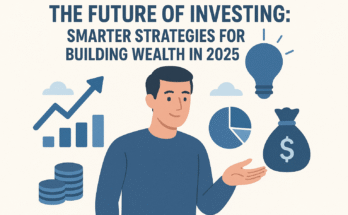Credit cards have become one of the most widely used financial tools in modern life. They are more than just convenient pieces of plastic in a wallet—they represent access to credit, financial flexibility, and purchasing power that can shape everyday decisions as well as long-term financial health. Used wisely, credit cards offer rewards, security, and opportunities that cash and debit cards cannot match. Misused, however, they can lead to debt and financial strain.
Understanding credit cards is therefore essential for anyone seeking to manage money effectively. From how they work to the benefits they provide and the risks they carry, credit cards remain at the center of discussions about financial responsibility and opportunity.
The Evolution of Credit Cards
The concept of buying now and paying later is not new. Early forms of credit existed long before the invention of modern banking, but the plastic credit card as we know it emerged in the mid-20th century. Initially, cards were issued by individual stores, allowing loyal customers to make purchases on credit. Over time, banks and financial institutions standardized credit cards, expanding their use to millions of merchants worldwide.
The introduction of electronic payment systems, magnetic stripes, and eventually chip technology transformed how credit cards worked. Today, digital wallets, contactless payments, and virtual cards have pushed the industry even further into the digital age. The modern credit card is as much a technological innovation as it is a financial instrument.
Why Credit Cards Matter in Personal Finance
For many people, credit cards are the first form of credit they ever use. Unlike loans or mortgages, credit cards are revolving lines of credit, meaning they can be used repeatedly as long as payments are made. This flexibility makes them powerful tools for managing short-term expenses, building credit history, and providing a financial cushion during emergencies.
Credit history is one of the most important aspects of financial life, influencing the ability to borrow money, rent an apartment, or even secure certain jobs. Using credit cards responsibly—by making payments on time and keeping balances low—helps build strong credit scores. These scores then open doors to lower interest rates, higher credit limits, and better financial opportunities.
Beyond credit building, credit cards often come with valuable features such as fraud protection, extended warranties, and travel insurance. These benefits make them not just payment tools but also safeguards for consumers.
The Benefits of Responsible Credit Card Use
When used strategically, credit cards can provide significant rewards and advantages. Many cards offer cashback on everyday purchases, allowing consumers to earn money back while spending on groceries, fuel, or dining. Others provide points or miles that can be redeemed for travel, shopping, or experiences. For frequent travelers, premium cards offer perks like airport lounge access, hotel upgrades, and free flights.
Another benefit is the convenience and security they bring. Carrying large amounts of cash is risky, while credit cards provide a safe and widely accepted alternative. If a card is lost or stolen, unauthorized charges can usually be disputed and reversed, protecting the cardholder from major losses.
Some credit cards also support budgeting and expense tracking. Monthly statements categorize spending, helping cardholders understand where their money goes. Paired with online apps, this data becomes a valuable tool for improving financial habits.
Risks Associated with Credit Cards
Despite their many advantages, credit cards also carry risks if misused. The most significant is debt. High interest rates on unpaid balances can quickly turn small purchases into large obligations. Minimum payments may keep accounts in good standing but allow interest to accumulate, leading to long-term financial strain.
Overspending is another danger. The ease of swiping a card can lead some to spend more than they can afford, especially when combined with rewards programs that encourage frequent use. Without discipline, this can result in financial stress and damaged credit scores.
Late payments are also costly, often resulting in penalties and increased interest rates. Beyond financial consequences, missed payments can negatively affect credit history, making it harder to borrow in the future.
Strategies for Smart Credit Card Management
The key to benefiting from credit cards is responsible use. Paying balances in full each month avoids interest charges and ensures that rewards truly add value. Setting reminders for payment due dates helps prevent late fees and protects credit scores.
Limiting the number of cards can also simplify management. While some people successfully juggle multiple cards to maximize rewards, others may find it easier to focus on one or two cards that align with their spending habits. Choosing cards with no annual fees or benefits that match lifestyle needs prevents unnecessary costs.
Keeping credit utilization low is another important strategy. Credit utilization refers to the percentage of available credit that is being used. Financial experts recommend staying below 30 percent of total limits to maintain strong credit scores. For example, if a card has a limit of $10,000, keeping the balance under $3,000 is ideal.
Monitoring statements regularly helps detect unauthorized charges early. With the rise of digital banking, cardholders can set up alerts for transactions, ensuring real-time updates on spending and security.
Credit Cards and Technology
Technology has significantly transformed the way people use credit cards. Mobile wallets like Apple Pay, Google Pay, and Samsung Pay allow contactless transactions, adding convenience and security. Virtual cards provide temporary numbers for online purchases, reducing the risk of fraud.
Artificial intelligence and machine learning are also reshaping credit card services. Lenders use data analytics to personalize offers, detect unusual activity, and create tailored reward structures. Consumers benefit from faster approvals, enhanced fraud protection, and smarter tools to manage their accounts.
Blockchain technology may also influence the future of credit cards by enabling faster, more transparent transactions. While still developing, these innovations show how credit cards will continue to evolve alongside financial technology.
The Future of Credit Cards
The role of credit cards in financial life is unlikely to diminish. If anything, they will become more integrated into digital ecosystems. As commerce moves increasingly online, credit cards remain the preferred method of payment for many consumers and businesses.
At the same time, competition among banks and fintech companies is driving innovation. More cards are offering flexible rewards, zero-interest introductory periods, and unique perks designed to meet diverse consumer needs. Environmental and social considerations are also becoming important, with some cards offering rewards tied to sustainable spending or contributions to social causes.
The global reach of credit cards continues to expand as well. International travelers benefit from cards that eliminate foreign transaction fees, while businesses use corporate cards to streamline expenses across borders. Credit cards are not just tools for spending—they are instruments of financial connection in a globalized economy.
Final Thoughts
Credit cards are powerful financial tools that combine convenience, rewards, and security. They play a central role in personal finance, helping individuals build credit histories, manage expenses, and access valuable perks. Yet their benefits come with responsibilities. Without careful use, the same tool that supports financial growth can lead to debt and stress.
The secret lies in balance. Those who use credit cards with discipline—paying balances on time, controlling spending, and taking advantage of rewards wisely—can enjoy their full potential. For anyone seeking to navigate modern finance with confidence, understanding credit cards is essential. They are not just pieces of plastic but gateways to financial opportunity when used with care.


